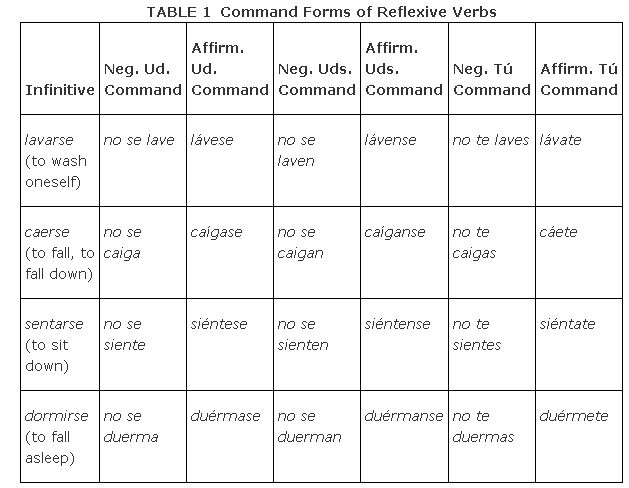Using Pronouns with Commands
Reflexive, indirect object, and direct object pronouns must be attached to the end of an affirmative command. Remember the acronym RID because, if more than one of these pronouns are used together, they will consistently be used in that order. When you attach even one pronoun to the end of an affirmative command, you must add an accent mark to the command form in order to maintain the correct stress. The written accent mark is placed on what was the next‐to‐the‐last syllable before you attached any pronoun.
- Julio, tu hermano necesita una chaqueta. Cómprasela para su cumpleaños, por favor.
- Julio, your brother needs a jacket. Buy it for him for his birthday, please.
- Get (yourself) up right now.
If the command is negative, the pronouns are placed in front of the command form (but after the no or other negative word).
- No se me quejen del hotel.
- Do not complain to me about the hotel.
Table provides the command forms of several reflexive verbs. The placement of the reflexive pronouns in the chart also indicates where any indirect or direct object pronoun would be placed with affirmative and negative commands. Because reflexive pronouns are used below, notice that te is the pronoun used for both negative and affirmative tú commands, and that se is the pronoun used for the Ud. and Uds. forms. Learn where the pronoun is placed in each negative and affirmative form, and pay close attention to written accent marks.

|
|
|
|
|